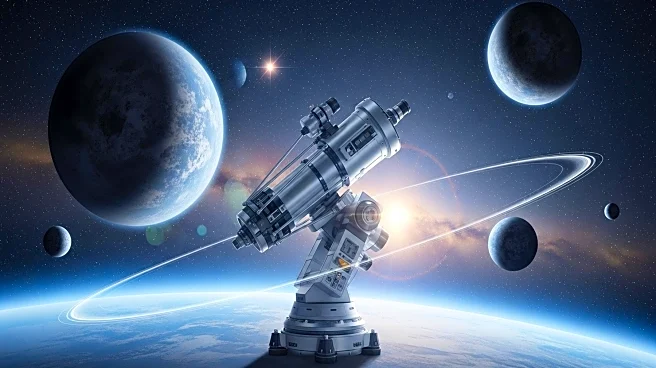What is the story about?
What's Happening?
NASA has announced that the number of confirmed exoplanets has reached 6,000, marking a significant milestone in the study of planets outside our solar system. This achievement comes 30 years after the first exoplanet was discovered orbiting a star similar to our sun. The diversity among these exoplanets is vast, including rocky planets, lava worlds, and gas giants. NASA's Exoplanet Science Institute (NExScI) continues to monitor over 8,000 potential planets awaiting confirmation. Future missions, such as the Nancy Grace Roman Space Telescope and the Habitable Worlds Observatory, aim to discover more Earth-like planets and worlds with possible signs of life. The increase in confirmed exoplanets has allowed scientists to better understand the planet population across the universe, with rocky planets appearing to be the most common.
Why It's Important?
The confirmation of 6,000 exoplanets is a testament to decades of exploration driven by NASA's space telescopes, fundamentally altering humanity's view of the night sky. This milestone is crucial for understanding the conditions under which planets form and determining how common Earth-like planets might be. The knowledge gained from these discoveries is essential for answering the fundamental question of whether we are alone in the universe. The continued identification and study of exoplanets could lead to breakthroughs in finding habitable worlds and understanding the universe's diversity.
What's Next?
NASA plans to continue its efforts in exoplanet discovery with upcoming missions like the Nancy Grace Roman Space Telescope and the Habitable Worlds Observatory. These missions are expected to enhance the search for Earth-like planets and potential signs of life. The scientific community will likely focus on confirming the 8,000 potential planets identified by NExScI, which could further expand our understanding of the universe's planetary diversity.
Beyond the Headlines
The discovery of exoplanets not only advances scientific knowledge but also raises ethical and philosophical questions about humanity's place in the universe. As technology improves, the potential for discovering life on other planets could challenge existing cultural and religious beliefs, prompting a reevaluation of our understanding of life and existence.

















